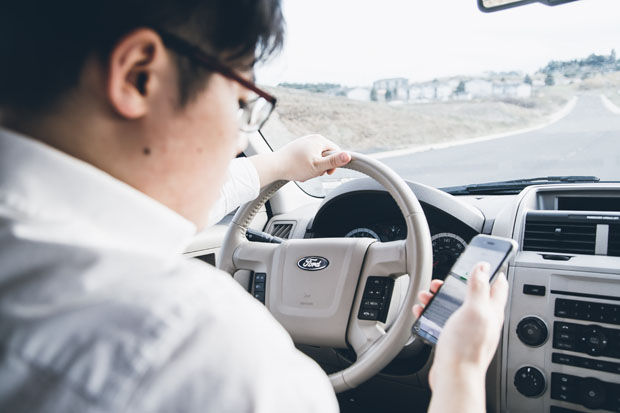‘It’s not worth it’
April 9, 2015
The Pullman Police Department is in the midst of a two-week campaign to dial in on texting drivers.
The “U Drive. U Text. U Pay.” campaign, which runs through April 15, includes high visibility enforcement efforts in which officers “try to flood a small (geographical) area,” Pullman Police Cmdr. Chris Tennant said. The goal is to get people to notice the campaign and then ask themselves if they should be texting and driving, he said.
“The idea is that we want when drivers see a police car, it makes them think about this campaign that we’re having,” Tennant said.
Texting and driving carries a $124 fine.
Pullman PD joined more than 100 other law enforcement agencies in Washington state.
“Locally we are teamed up with WSU (police) and Whitman County and State Patrol,” Tennant said.
This is the second year of the statewide effort, said Angie Ward, program manager for the Washington Traffic Safety Commission (WTSC).
“Law enforcement in Washington has been really involved in enforcing this (texting and driving) law,” Ward said, adding, “So while the campaigns are important, even more important is that law enforcement is involved all year long.”
Pullman Police Chief Gary Jenkins attended the campaign kick-off event April 1 in Spokane.
“The campaign was initiated really by the parents of Sam Thompson who died on the road between Pullman and Colfax as a result of his texting,” Jenkins said. “They don’t want Sam’s death to be in vain so they’re using that as a message to other motorists … so that no one else has to go through what they went through.”
Jim and Lisa Thompson were at the event and spoke about their experience. They also unveiled the memorial sign that has now been installed at the site of the September 2014 crash on Highway 195.
The campaign is part of Target Zero, the Washington state plan to reduce traffic deaths and serious injuries to zero by 2030.
Every state is required to have some sort of plan for traffic safety with benchmarks and goals, Ward said
“Zero is the only acceptable goal,” she said.
In 2013, there were 436 traffic fatalities in Washington, according to WTSC data.
“About 30 percent of those are distraction related,” Ward said, noting that it’s difficult to measure how many deaths and injuries are directly linked to cell phones since people won’t admit to it.
She said it’s interesting how people get mad at others for texting and driving, but then turn around and do the same thing. Ward acknowledged that, in the past, she has texted while driving.
One of the big reasons she was inspired to change her behavior was to set a good example for her children.
Children watch their parents drive for years before they ever get behind the wheel. If we want our children to be courteous, responsible drivers, then we need to drive that way too, Ward said.
Tennant and Ward agreed that, while people don’t like getting tickets, the response to the campaign has been overwhelmingly positive.
“Texting and driving is one of those things I think everyone agrees is not a good thing, but most people do it at some point,” Tennant said.
Whenever you talk to somebody who has been in a crash it seems like you always hear the same thing, Ward said.
“‘It came out of nowhere,’ or, ‘It happened so fast,’” she said. “All the more reason that you always have to be on guard when you’re driving.”
Ward said she hopes the campaign gets people to reconsider their own driving habits.
“What’s so important that it has to happen while you’re driving?” she asked. “It can wait.”















